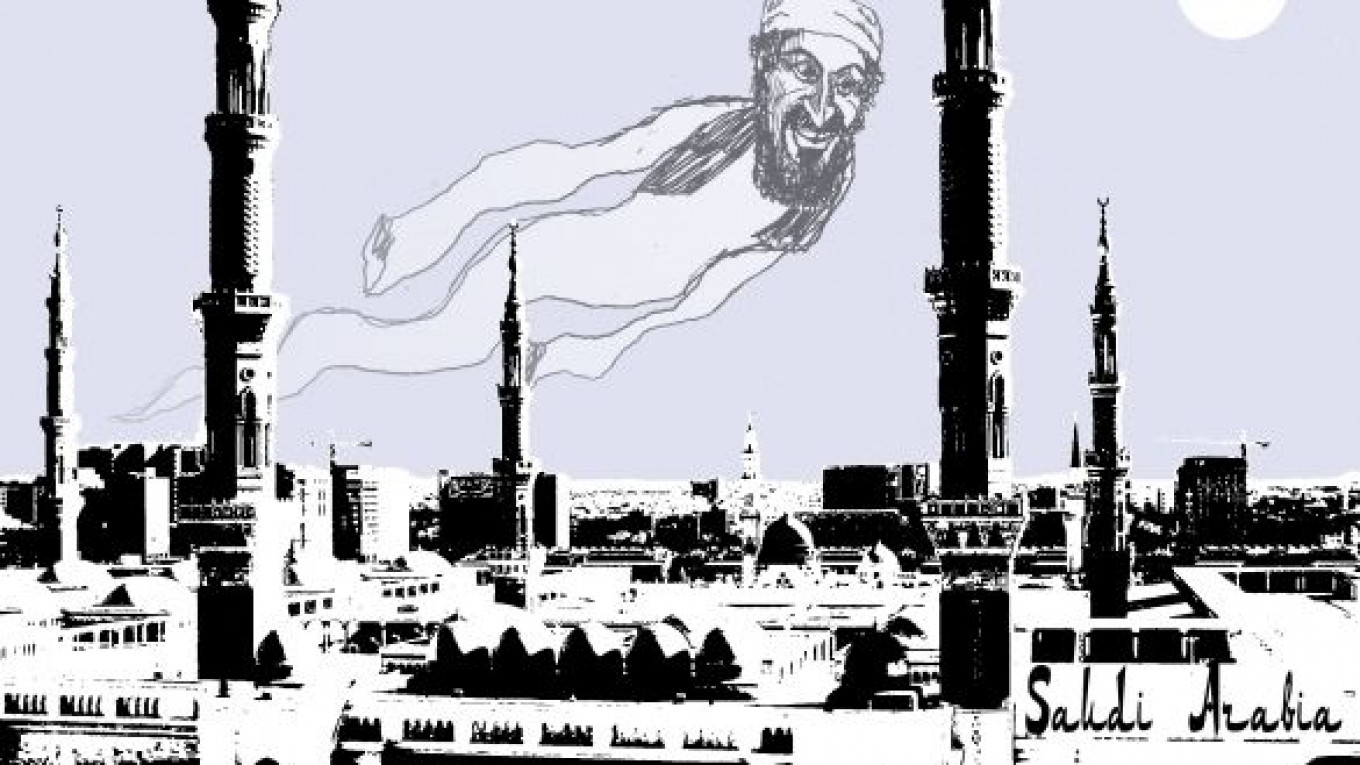Osama bin Laden’s death in his Pakistani hiding place is like the removal of a tumor from the Muslim world. But aggressive follow-up therapy will be required to prevent the remaining al-Qaida cells from metastasizing by acquiring more adherents who believe in violence to achieve the “purification” and empowerment of Islam.
Fortunately, bin Laden’s death comes at the very moment when much of the Islamic world is being convulsed by the treatment that bin Laden’s brand of fanaticism requires: the Arab Spring, with its demands for democratic empowerment (and the absence of demands, at least so far, for the type of Islamist rule that al-Qaida sought to impose).
But can the nascent democracies being built in Egypt and Tunisia — and sought in Bahrain, Libya, Syria, Yemen and elsewhere — see off the threats posed by Islamist extremists? In particular, can it defeat the Salafi and Wahhabi thought that has long nurtured bin Laden and his ilk and which remains the professed and protected ideology of Saudi Arabia?
The fact is that before the U.S. operation to kill bin Laden, the emerging democratic Arab revolutions had already done as much in just a few short months to marginalize and weaken his terrorist movement in the Islamic world as the war on terror had achieved in a decade. Those revolutions, whatever their ultimate outcome, have exposed the philosophy and behavior of bin Laden and his followers as not only illegitimate and inhumane, but actually inept at achieving better conditions for ordinary Muslims.
What millions of Arabs were saying as they stood united in peaceful protest was that their way of achieving Arab and Islamic dignity is far less costly in human terms. More important, their way will ultimately achieve the type of dignity that people really want, as opposed to the unending wars of terror to rebuild the caliphate that bin Laden promised.
After all, the protesters of the Arab Spring did not need to use — and abuse — Islam to achieve their ends. They did not wait for God to change their condition, but took the initiative by peacefully confronting their oppressors. The Arab revolutions mark the emergence of a pluralist, post-Islamist banner for the faithful. Indeed, the only people to introduce religion into the protests have been rulers — such as those in Bahrain, Yemen, Libya and Syria — who have tried to use fear of the Shia or Sunni “other” to continue to divide and misrule their societies.
Now that the United States has eradicated bin Laden’s physical presence, it needs to stop delaying the rest of the therapeutic process. Washington has been only selectively — and shortsightedly — irradiating parts of the cancer that al-Qaida represents, while leaving the malignant growth of Saudi Wahhabism and Salafism untouched. Indeed, despite the decade of the West’s war on terror and Saudi Arabia’s longer-term alliance with the United States, the country’s Wahhabi religious establishment has continued to bankroll Islamist extremist ideologies around the world.
Bin Laden — who was born, raised and educated in Saudi Arabia — is a product of this pervasive ideology. He was no religious innovator. He was a product of Wahhabism and later was exported by the Wahhabi regime as a jihadist.
During the 1980s, Saudi Arabia spent $75 billion for the propagation of Wahhabism, funding schools, mosques and charities throughout the Islamic world. The Saudis continued such programs after the terror attacks of Sept. 11, 2001. Not surprisingly, the creation of a transnational Islamist political movement, boosted by thousands of underground jihadi web sites, has blown back into Saudi Arabia.
Like the hijackers of 9/11, who were also Saudi Wahhabi ideological exports (15 of the 19 men who carried out those terror attacks were chosen by bin Laden because they shared the same Saudi descent and education), Saudi Arabia’s reserve army of potential terrorists remains because the Wahhabi factory of fanatical ideas remains intact.
So the real battle has not been with bin Laden, but with that Saudi state-supported ideology factory. Bin Laden merely reflected the entrenched violence of Saudi Arabia’s official ideology.
Bin Laden’s eradication may strip some dictators — both within the Arab world and beyond — of the main justification they have used for their decades of repression. But the United States knows perfectly well that al-Qaida is an enemy of convenience for Yemen and other U.S. allies in the region. In many cases, terrorism has been used as a pretext to repress reform. Indeed, now Washington is encouraging repression of the Arab Spring in Yemen and Bahrain, where official security forces routinely kill peaceful protesters calling for democracy and human rights.
Al-Qaida and democracy cannot coexist. Indeed, bin Laden’s death should open the international community’s eyes to the source of his movement: repressive Arab regimes and their extremist ideologies. Otherwise, his example will continue to haunt the world.
Mai Yamani’s most recent book is “Cradle of Islam.” © Project Syndicate
A Message from The Moscow Times:
Dear readers,
We are facing unprecedented challenges. Russia's Prosecutor General's Office has designated The Moscow Times as an "undesirable" organization, criminalizing our work and putting our staff at risk of prosecution. This follows our earlier unjust labeling as a "foreign agent."
These actions are direct attempts to silence independent journalism in Russia. The authorities claim our work "discredits the decisions of the Russian leadership." We see things differently: we strive to provide accurate, unbiased reporting on Russia.
We, the journalists of The Moscow Times, refuse to be silenced. But to continue our work, we need your help.
Your support, no matter how small, makes a world of difference. If you can, please support us monthly starting from just $2. It's quick to set up, and every contribution makes a significant impact.
By supporting The Moscow Times, you're defending open, independent journalism in the face of repression. Thank you for standing with us.
Remind me later.






